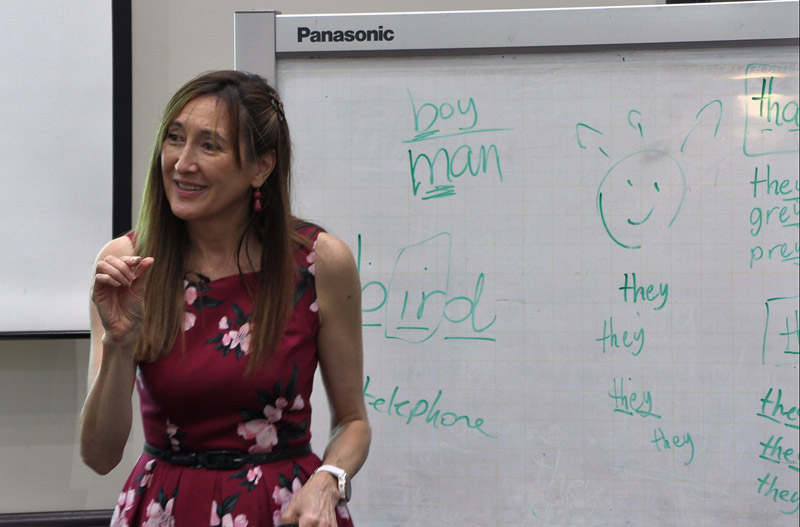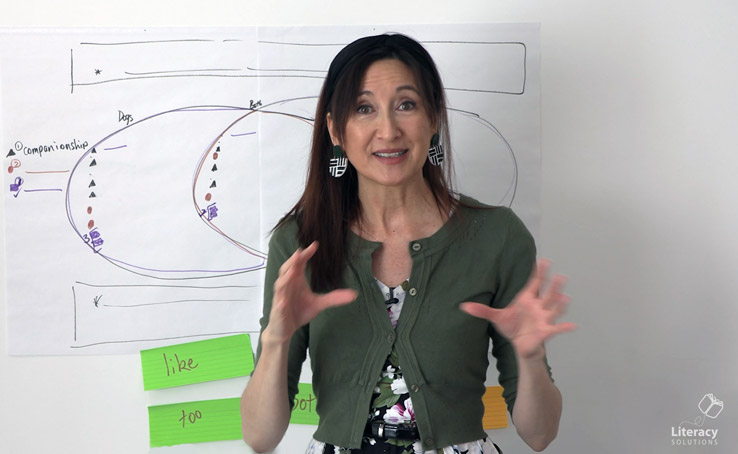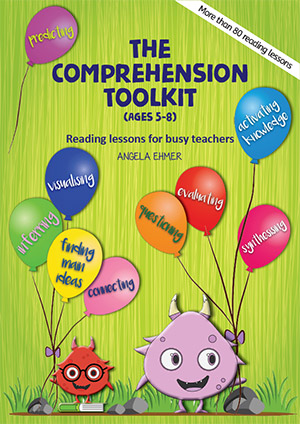Friday, 14 August 2009 at 12:37 pm
Comprehension is built around a foundation of prior knowledge and will therefore differ for individuals. It is possible and likely for students within a single cohort to have different understandings of elements within the same text.
Factors contributing to a strong foundation of prior knowledge:
rich language environments, i.e. those in which there is a high volume of general and focused talk around a variety of topics; …
Continued... | Posted in Reading |
1 Comment »
Wednesday, 5 August 2009 at 3:07 pm
How do we improve reading outcomes for students? What do highly proficient teachers of reading do? Here’s my Top Ten list . . .
Gather regular, ongoing records using both formal and informal measures on continuous text; analyse strategic behaviour on errors and self-corrections, make observations about elements of prosody and fluency and assess comprehension; determine skills and knowledge controlled and absent; identify patterns of behaviour
Analyse …
Continued... | Posted in Reading |
8 Comments »
Wednesday, 29 July 2009 at 11:01 pm
I was recently in Canberra working with the Catholic Education Office Canberra-Goulburn to formulate a position statement and supporting document to align literacy practice across the diocese.
It’s enormously exciting to be involved in projects of this nature. Not only will this document address a framework outlining consistent literacy practice across all year levels, but it aims to:
clarify purpose and audience for all literacy learning
embed …
Continued... | Posted in Literacy general |
7 Comments »
Wednesday, 15 July 2009 at 7:05 pm
I recently wrote on the importance of intrinsically motivated readers. There is much to be gained from providing texts around students’ interests. How can we do this? The obvious answer is to ask and they’ll tell us. This works for most students, but you may have observed that some students don’t appear to know what they’re interests are. We only need to watch as …
Continued... | Posted in Reading |
1 Comment »
Saturday, 27 June 2009 at 7:40 pm
I had a pretty stressful experience on the week-end that kept reminded me of two important things. Here’s what happened …
It was Saturday morning. I had a very important appointment in the city. I parked the car in a multilevel basement car park and walked to the lift. On the way I passed a stairwell to street level, a quicker exit option, but noticed it …
Continued... | Posted in Life, Uncategorized |
Comments Off on Signs of illiteracy in the strangest places
Saturday, 20 June 2009 at 9:05 pm
I’ve just returned from a week away in central Queensland. Whilst away, I visited Blackwater, Rockhampton and Maryborough and had the wonderful opportunity to work with more than one hundred and fifty teachers and teachers’ aides across primary and high schools.
I am always excited to witness the dedication our educators bring to the role and wanted to share a few of many highlights for me.
Before …
Continued... | Posted in Literacy general |
Comments Off on Dedicated literacy educators are up for the challenge
Wednesday, 13 May 2009 at 9:57 pm
Much has been written about the "Book Box" or selection of easy or familiar texts used to support independent learning. In a recent conversation, the notion of the book box was discussed and the specific contents of the box debated. There appeared to be some confusion around suitable material and also how it should be used to support students during independent learning.
Book boxes provide students …
Continued... | Posted in Reading |
Comments Off on Easy Reading to Support Guided Reading Instruction
Friday, 17 April 2009 at 3:08 pm
’Lights for Literacy’ – rewards for innovative literacy programs.
Are you doing something innovative in your classroom? If so, you may be eligible for a future grant from the International Reading Association (IRA). The IRA have begun an exciting new project titled, 1000 Lights for Literacy.
This project aims to support teachers making positive changes at the classroom level by providing yearly grants to support the …
Continued... | Posted in Literacy general |
1 Comment »
Thursday, 19 March 2009 at 4:43 pm
Data gathering is vital for planning effective instruction
The reading gap
The gap which divides “good readers and spellers” and “poor readers and spellers” begins to form early in a student’s school life. Early years’ teachers observe differences in their students’ expressive and receptive language, knowledge about print, abilities to hear sounds and sound patterns, and to articulate and recreate them.
With this diversity in mind, can careful …
Continued... | Posted in Reading |
Comments Off on Prevention versus intervention: supporting beginning readers/writers
Monday, 9 March 2009 at 2:26 pm
Junk food for young readers?
The more you read, the better you get. There is no surprise about this. It makes sense and there is universal agreement from literacy researchers and teachers.
With this in mind, let’s think about human nature. Most of us enjoy doing the things we are good at, and avoid those things too challenging or that have little value or reward. …
Continued... | Posted in Reading |
3 Comments »




